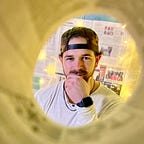Will You Be Ordinary, or Extraordinary?
Determining where to focus your time and energy
“Do I have what it takes to be extraordinary, or just ordinary?”
I believe that every single human should ask themselves this question regularly.
And we should ask this question for two simple reasons: To prioritize and to provide clarity.
We’ve all heard the story that it takes +10,000 hours of practice to become a master at anything. And we automatically accept this truth without questioning it because the “science” is there…
But that isn’t always the case.
The prerequisite here is that the individual needs to be doing something they are naturally inclined towards or have a great interest in.
And this is why it is essential to ask yourself that question.
“Is this something that I can be extraordinary at?”
Some of you would imagine this goes without saying. After all, you will be dumping 10k hours of work into it, so you’d better have a vested interest. BUT it is worth noting because it will prevent you from the oversight of thinking you can be great at anything.
Because the fact of the matter is, you can’t.
And I can’t either.
And it sucks…
But it’s the truth.
To Prioritize
Knowing that I can’t be exemplary at everything pushes me to find those things that I can be excellent at. So most days, as I do my work, I ask myself, “Do I have what it takes to be extraordinary at this task?”
- Do I have the inclinations and skills to excel at this?
- Do I have the interest and drive?
- Do I have natural talent?
- Do I have the bandwidth and time to invest in it?
These are all important questions as they will help you properly prioritize this task, skillset, interest, or hobby.
We only live once, and every second of life is precious.
I will not waste my time doing something I’m not passionate about that I don’t have the potential to be extraordinary at.
The One Caveat
The one caveat here is if I was naturally gifted at something, to the point where excellence was effortless…
Then, I might engage in the activity even if it didn’t bring me much joy or excitement. I would be a professional, a top performer in my specific field, and it would be a crime to waste this skill. If this were the case, chances are I would have already put in the hours and the work, and thus, having achieved mastery, I would be looking to try something new.
But that’s not the case for me…
And I doubt it’s the case for you.
So I challenge you to ask yourself,
“Is this something that I [you] can be extraordinary at?”
If the answer is yes — continue.
If the answer is no, but you’re very interested — give it a try.
If the answer is no, and you are below a 6:10 on the interested scale — Walk away.
It’s clearly not worth your time, and it should not be a priority.
Determining what you can be good at
How do you know if the activity, the hobby, the job, is something you will be good at?
Great question.
The answer is simple: Know yourself.
You must know yourself, your strengths, weaknesses, faults, vices, and virtues to accurately assess your capabilities and aptitudes — Know yourself.
If you aren’t very social and don’t like talking to strangers — chances are you won’t be good at sales.
If you get easily frustrated by the stupidity and mistakes of others, do yourself a favor — stay away from customer support jobs.
The error of thinking you “don’t know what you want.”
Don’t make the mistake of thinking that you have to know EXACTLY what you want in order to move towards success- towards excellence.
Because that’s not the case.
In fact, knowing what you don’t want is just as important as knowing what you do want.
Imagine you are a boat, floating in the middle of the ocean, surrounded by sea on all sides. There isn’t a single landmass in sight, and the sun is beating down on you from behind.
Now, sitting there on your boat in the middle of the ocean, you have the potential to go anywhere. You can go North, East, South, or West. You have nothing but potential.
This is you going through life — pure potential.
But that doesn’t do you any good. You’re not moving anywhere, and if you don’t find land and water, then you will eventually die. That is to say, if you don’t strive for your potentials, you’ll lose them. That is the nature of life. You either use it or lose it.
So what do you do?
First, you take a look at what you know. You know you came from the West, and there was nothing there. This is good because you just eliminated 25% of your options.
Next, you know that there should be something in the North-East area — which narrows your focus down even more.
Do you see what’s happening here?
This is the same thing; by slowly working out what you don’t want and factoring in your general inclinations/knowledge, you are able to focus on a broad direction. Then it is up to you to move in that direction and make course corrections on the way.
Once you have learned and discovered enough about yourself, you will be able to move forward towards those areas of your life that you can excel in.
You will be able to prioritize effectively and get after it.
You will be equipped to pursue excellence in any realm of your life.
